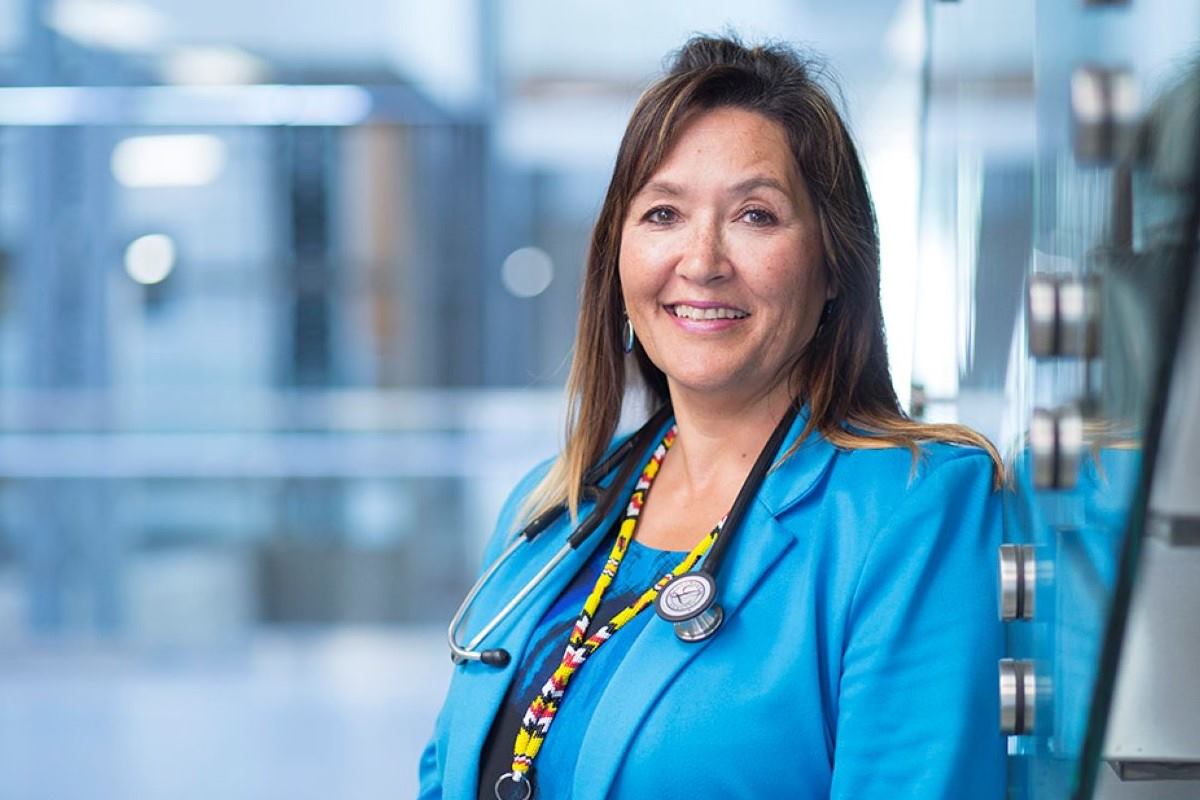
A good way forward
Recommendations developed as part of the Health Sciences Reorganization Initiative aim to take important steps forward in the decolonization and indigenization of the health sciences at the University of Saskatchewan (USask).
By Collin Semenoff, USask Communications SpecialistThe initiative explored options for an improved and sustainable future-state organizational structure within the USask Health Sciences — the administrative unit responsible for supporting collaborative efforts across the health science disciplines at the university. In addition to recommending administrative approaches to support governance, operations, and a re-envisioned sharing of resources, the initiative’s steering committee also recommended a revisiting of committee structures and memberships to ensure that there is a place for Indigenous perspectives to be considered at all Health Sciences’ decision-making tables.
For Dr. Veronica McKinney (MD), director of Northern Medical Services at USask, the creation of an Indigenous Advisory Committee (IAC) and inclusion of an IAC representative on all Health Sciences committees has the potential to foster significant change throughout the health science disciplines and USask community.
“It is a strong model of collaboration which inspires the embracement of manacihitowin (respect one another),” she said.
“I picture this collaboration as a circle with everyone working together — no one ahead and no one behind. I’m optimistic about the potential for improvement across the health science disciplines and hope to see that translated to the broader USask community and beyond.”
The incorporation of Indigenous counsel in health science leadership decisions at the university is also an opportunity to address racism and oppression in the health system, said Dr. Holly Graham (PhD), Indigenous Research Chair in Nursing at USask and associate professor with the College of Medicine.
“We need to support future health professionals with the knowledge and practical experiences to better serve Indigenous populations. Including Indigenous engagement in the reorganization of operations within the Health Sciences is necessary to continue this important work,” she said.

